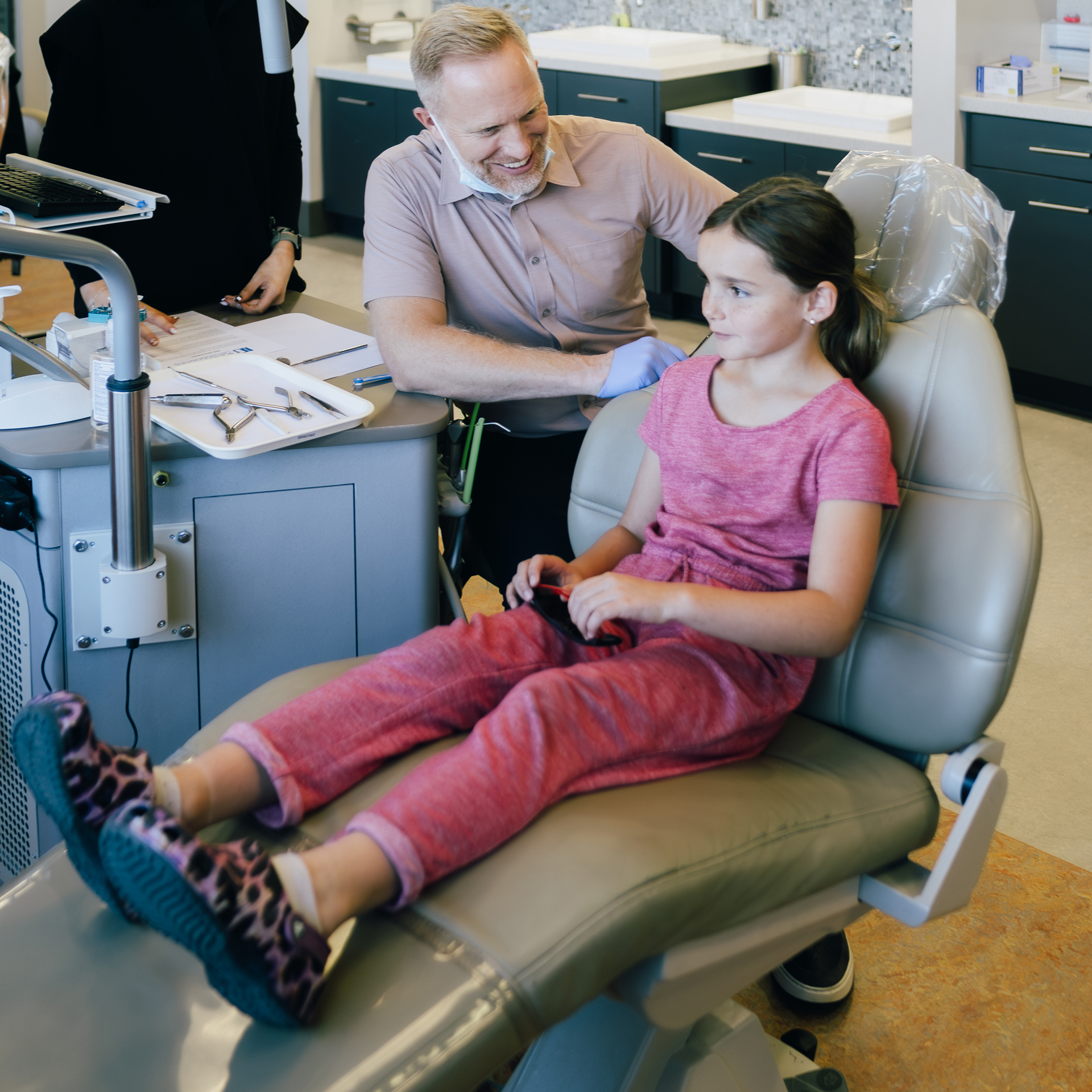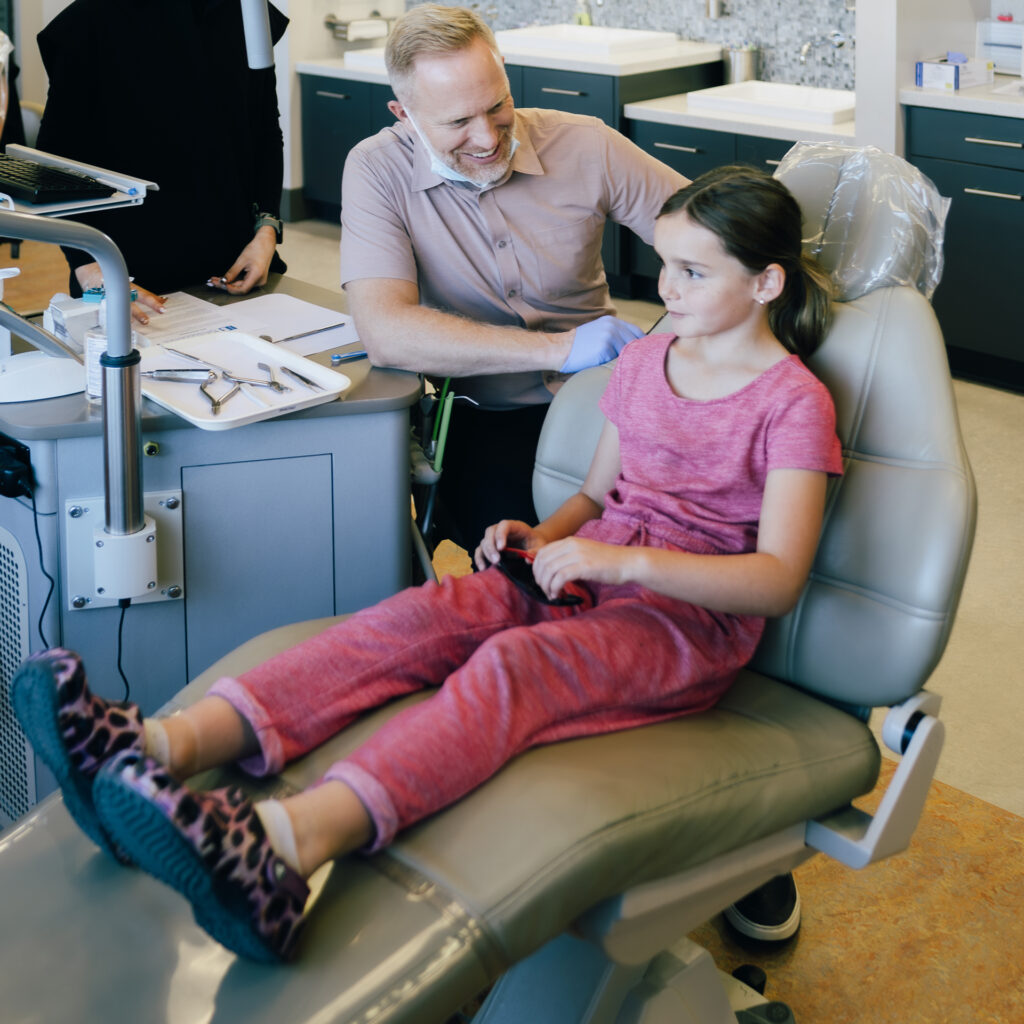

Early Orthodontic Treatment in Bountiful, UT
Bountiful Orthodontics believes in the importance of addressing orthodontic issues early on to set the foundation for beautiful smiles. Our family-oriented team offers personalized care for your child with a focus on fostering patient-doctor relationships.
Schedule a Complimentary Consultation
What Is Early Orthodontic Treatment and How Does It Work?
Early treatment, also known as Phase 1 treatment, typically begins around age 7. At this age, the American Association of Orthodontics recommends that your child see an orthodontist to monitor their oral development and correct any present or emerging issues if necessary. By addressing orthodontic issues early, the need for more intensive treatments later on can be reduced.
Fantastic Early Treatment at Bountiful Orthodontics
If your child needs orthodontic treatment, our smile specialists will be there for the entire orthodontic journey. Our goal is to limit extractions during treatment by intervening early, resulting in a beautiful, broad smile. We offer two treatment options for children:
Clear Aligners
Clear aligners are a revolutionary alternative to braces and are perfect for children. They’re nearly invisible, removable, and easy to maintain. Children will love being able to eat their normal foods while undergoing orthodontic treatment with our custom-fitted Spark, uLab, or Invisalign aligners.
Learn More About Clear Aligners
Damon Braces for Kids
Our orthodontists are Premier Providers of Damon Braces, a first-class option for orthodontic treatment. Damon Braces use self-ligating technology, which limits friction and reduces office visit times. We offer these braces in both metal and clear options.
What if My Child Does Not Need Phase 1 Orthodontic Treatment?
Not every child will need early orthodontic treatment. In this case, our orthodontists may recommend periodic follow-up visits to ensure their smile is progressing correctly. No matter your child’s needs, our recommendations will always be provided with honesty and integrity – you can trust us to give your child the smile they deserve!


See if Early Treatment Can Elevate Your Child’s Smile
At Bountiful Orthodontics, we understand that every child’s smile is unique. Along with providing tailored treatment plans, we prioritize our patients’ comfort, and we are passionate about creating unforgettable family experiences. If your child is ready for their first appointment, Dr. Feller, Dr. Heaps, and Dr. Webster are ready to help.